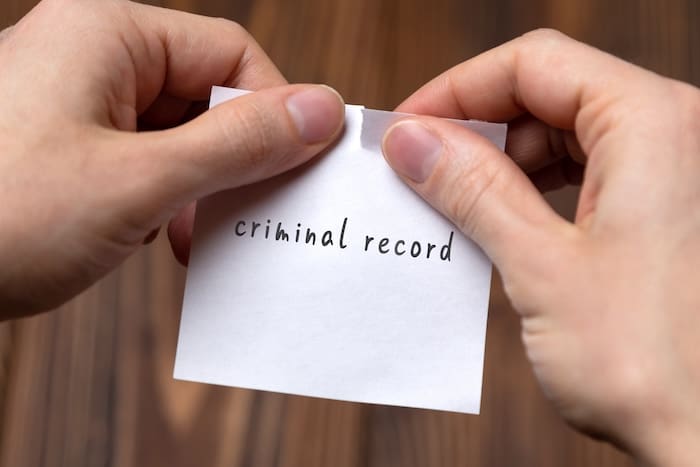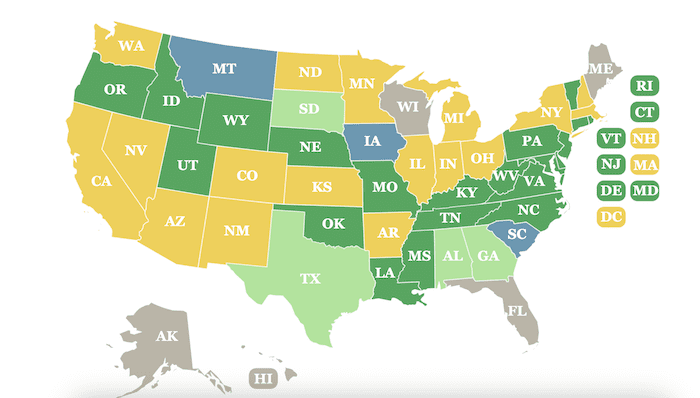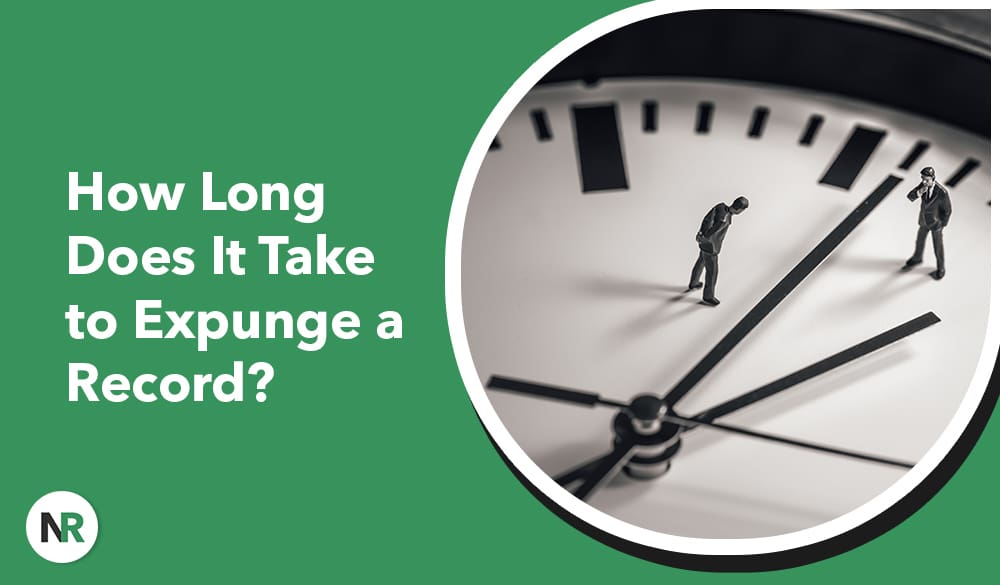Are you wondering, “How long does it take to expunge a record?” The answer isn’t straightforward, but we can give you an idea of what to expect.
If you’ve committed a crime or have been arrested in the past, you’re probably worried about how the offense will impact your future.
Whether or not you qualify for criminal expungement of your arrest record depends on state law, along with other factors, like the type of offense you have a conviction for and how long it’s been since you completed your sentence.
Most people wonder, “How long does it take for my record to go away?”
Chances are, you’re missing out on personal and employment opportunities if people are able to find your arrest record online.
There are a lot of benefits to expunging a record. It can be easier to buy or rent a home and get a job when you no longer have a criminal record. Additionally, having a criminal conviction carries a social stigma, and expunging your record can improve your personal online reputation.
In this article, we’ll go over what to expect regarding record expungement, including what you might need to qualify and how your arrest history and court record could be impacting your online reputation.
To speak with an online reputation management expert about content removal, call us today at 844-461-3632 or fill out the contact form below.
Request a Free Consultation
What Does It Mean to Expunge a Record?

When a record is expunged, the criminal record and the conviction are completely erased as though they never happened. Typically, this involves destroying the entire record, including digital and physical copies.
The process of having a criminal record expunged involves going into the court and asking that the judge order the expungement.
Sealing a record is different from expunging a record. Sealing an arrest record means that the public can’t access the record; legally, the record still exists.
How Do You Get a Criminal Record Expunged?

Expungement law and requirements vary by state. However, in many cases, requirements include the following:
- Time: There’s usually a required waiting period between the criminal event and when you’re eligible for expungement.
- Conviction History: There can’t be additional criminal history between the end of the case and when you request expungement.
- Priors: Only people who haven’t had any priors or have had a limited number of priors will be eligible for expungement.
- Sentence: You must fully complete the terms of your sentence, including paying court fees, and you can’t have any pending pending proceedings.
- Probation: You must have completed probation without incidents.
Even if you fulfill these requirements, there’s no guarantee that your state will expunge your record. For example, in New York, there aren’t any expungement laws other than for crimes related to marijuana. Instead, New York may seal your record if certain requirements are met.
Which States Have Expungement Laws

Source: Restoration of Rights Project
Expungement law varies by state. Here are a few examples:
- Alabama: Victims of human trafficking can ask for expungement of misdemeanors and certain felonies.
- Illinois: You may get an expungement of first-time non-violent felonies 5 years after the completion of probation.
- Pennsylvania: Expungement is common for pardoned convictions.
For specific, state-by-state information, refer to section 5 of this page.
Often, there are exceptions to state expungement laws. Sometimes, even if the state has misdemeanor conviction or felony relief laws, some offenses will be ineligible. Also, states that have no expungement laws may still do so for specific conviction categories, such as convictions of victims of human trafficking.
Note that there isn’t any general rule about expunging federal convictions. Federal courts are extremely limited in their authority to expunge records. However, for first misdemeanor drug possession of a minor (under 21), the record may be eligible for expungement.
When Can I Expect Expungement of My Criminal Record?
When it comes to the time it takes for criminal record expungement, you have to consider both when you’re eligible for expungement and how long the expungement process takes.
Eligibility for Expungement

How long you have to wait for your criminal record to be expunged depends on state law. However, being able to make an expungement request is never a fast process.
In Ohio, you’re eligible for felony record expungement 10 years after the record is eligible for sealing. Regarding a misdemeanor, though, you can seek expungement one year after discharge or even less if it’s a minor misdemeanor.
In Oklahoma, you can have up to 2 nonviolent felonies expunged 10 years after your sentence is completed, so long as there aren’t any pending charges. If you have no priors, you may be able to have the felony expunged in 5 years instead of 10, and misdemeanors follow the same time period.
Rhode Island follows a similar timeframe — 5 to 10 years, depending on the crime and whether or not the individual was a first offender.
In general, expungement is only available if all legal obligations have been fulfilled and if the individual hasn’t gotten into trouble in the meantime.
Expungement Processing Time

Once you’ve submitted your application for expungement, it can take 3 or more months to have an answer. In some cases, it can take up to 8 months for the expungement to be processed.
For example, in Maryland, the expungement process takes 90 days once you’ve filed the petition. After that, the State’s Attorney’s Office only has 30 days to object to it if they want to.
In Michigan, however, the expungement process can take a total of 8 months, and the Department of Attorney General has 3 months to process their response to the petition once they’ve received the completed Criminal History Report.
FAQs About Criminal Record Expungement

Does your criminal record clear after 7 years?
Many people mistakenly think that United States criminal records automatically clear after 7 years. This is inaccurate. However, after 5 to 10 years, you may be eligible for expungement, depending on state law. At that point, you can file a petition with the court to have your criminal record expunged.
What records are eligible for expungement?
The types of criminal records that are typically eligible for expungement include dropped or dismissed charges, juvenile offenses, traffic violations, low-level misdemeanors, and nonviolent crimes.
How far back do most background checks go?
Criminal and federal background checks typically go back 7 to 10 years. For employment verification, background checks may go back 3 to 7 years.
Criminal History and Your Online Reputation
Having a criminal record can do major damage to your personal or professional online reputation. Whether or not you were responsible for the crime, simply having a record can lead to negative outcomes.
A public arrest record or mugshot photo can be very easy to find online with a simple web search. This is because many law enforcement agencies are required to post arrest information online, and then mugshot websites pick up that information and list it in their databases.
When your name, conviction history and booking photo show up in a Google search, you can miss out on personal and professional opportunities. It can make it difficult to get a loan from a bank, apply for a job or meet someone on a dating site.
Even if you get to the next step when buying a home, landing your dream job or meeting someone you have a romantic connection with, anyone can run a background check on you. Your record will be accessible via a background check, once again blocking you from moving forward in your life or career.
Expungement can take a long time. Even if you have an expunged conviction, it’s possible that mugshot websites and people search sites have old information that hasn’t been updated. While you may have expunged records in the legal sense, your court record, conviction information and other sensitive info may still be available for others to find.
You don’t have to wait to improve your online presence. Content removal and content suppression can improve your online reputation so you can start living the life you deserve.
Call us today at 844-461-3632 or fill out the form below to speak with an online reputation management expert.
